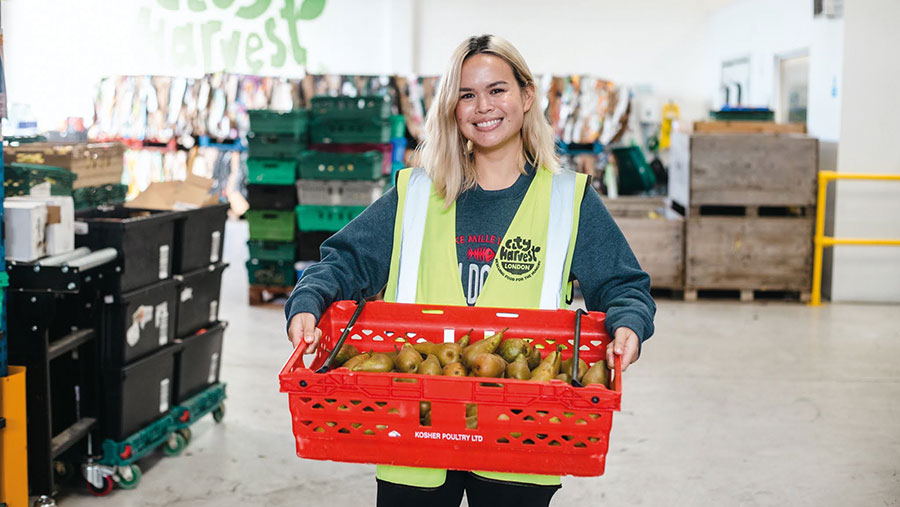Opinion: Why farmers must reach across the rural urban divide
 © City Harvest
© City Harvest Time spent off-farm can be important in lending a sense of perspective.
At the best of times, farmers are liable to spend every waking (and sleeping) moment within the confines of our single business identifier (SBI) numbers – and the past few years have hardly been the best of times.
In such circumstances, it’s easy to become “siloed”, operating largely within our own echo chamber, interacting primarily with others like us. This can narrow our perspectives and blind us to how others see the world.
See also: Stay positive and tell people how great farming is
I recently spent a week in London with the Institute of Agricultural Management. We visited Westminster, spoke with MPs, and were addressed by some of the great and the good of the industry.
We debated late into the night about the future of agriculture, the details of Environmental Land Management, natural capital and the looming food crisis.
Yet valuable too was the mere fact of being in a big city.
Walking the busy streets never ceases to bring home the colossal disconnect between the green and pleasant land most of us associate with Britain, and the sprawling concrete jungle that is the reality to most of this island’s 68 million inhabitants.
Farmers are often guilty of expecting – with a degree of paternalism – our fellow citizens to “back British farming” out of a sense of duty or even entitlement.
But when you are so utterly remote from the act of food production, why should it even be on your radar?
And that’s before we confront the staggering levels of inequality and poverty in society, where all too often people genuinely are presented with the choice between eating and heating.
During the week, we visited City Harvest London, a charity that distributes more than one million meals a month to 350 charities across the city, from food banks to refuges to children’s clubs.
This food – some 13,000t since 2014 – is the waste of our dysfunctional food system, most of it high-quality, fresh produce approaching the end of its use-by dates.
We are rapidly approaching a cost-of-living and food crisis. As an industry, we can hear the alarm bells, even if the government continues to deny the inevitable.
On the day we visited, they had just received 19t of air-freighted Chilean peaches that had been rejected by a wholesaler as unfit for sale, but which, via City Harvest, were on their way to those in need.
It was remarkable to witness this one tiny snapshot of the colossal scale of food waste in our society – about one-third of all food produced globally, and some 9m tonnes in the UK every year.
This, while more than eight million Britons live in food poverty.
We are rapidly approaching a cost-of-living and food crisis. As an industry, we can hear the alarm bells, even if the government continues to deny the inevitable.
This will affect the poorest in society to a terrible extent, and organisations such as City Harvest will no doubt be overwhelmed by demand.
That is a failure of social policy. But in the longer term, we as an industry also need to be more appreciative of the fact that, if we want people to buy British, not only do we need to produce to all price points (an issue largely dictated by cross-departmental government support), but we must put a lot more effort into reaching out to our urban consumers and explaining why they should care.

